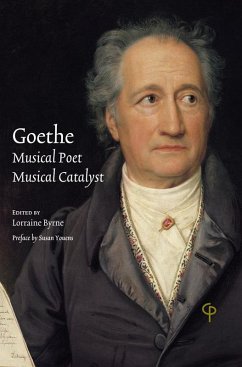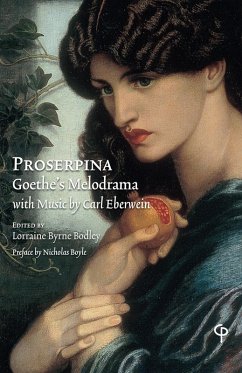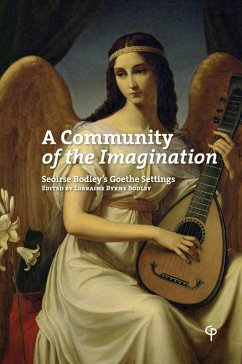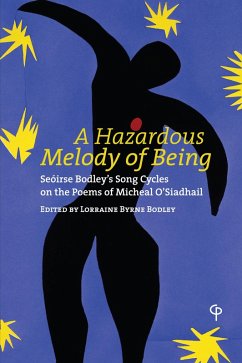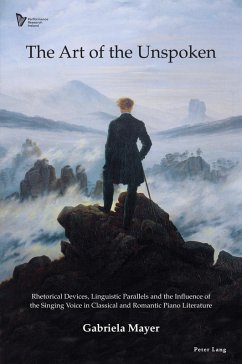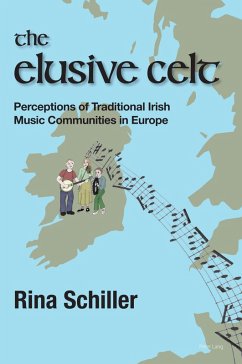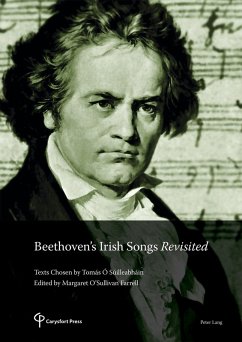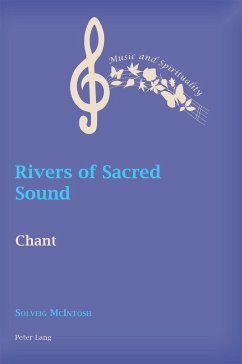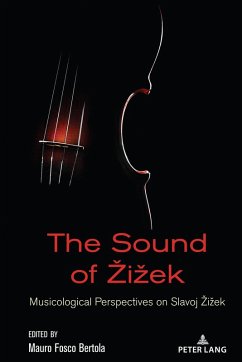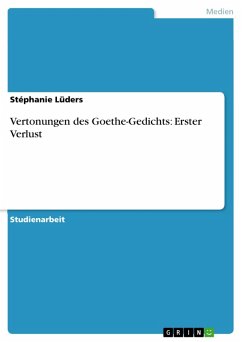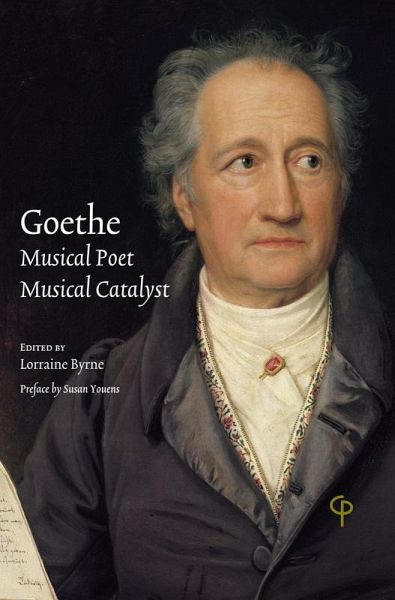
Goethe: Musical Poet, Musical Catalyst (eBook, PDF)
Versandkostenfrei!
Sofort per Download lieferbar
Statt: 34,65 €**
29,95 €
inkl. MwSt.
**Preis der gedruckten Ausgabe (Broschiertes Buch)
Alle Infos zum eBook verschenkenWeitere Ausgaben:

PAYBACK Punkte
15 °P sammeln!
«It was a great pleasure both to host and to participate in an international conference that brought together musicologists, composers, performers, and literary artists in stimulating and thought-provoking discourse. The collaboration of our colleagues from Queen's University, Belfast, was particularly welcome and appreciated; they, together with distinguished international Goethians, contributed much to what was a unique 36 hours of intellectual and artistic dialogue.»Professor Gerard Gillen, Chair of Music, National University of Ireland Maynooth & Titular Organist of Dublin's Pro-Cathedra...
«It was a great pleasure both to host and to participate in an international conference that brought together musicologists, composers, performers, and literary artists in stimulating and thought-provoking discourse. The collaboration of our colleagues from Queen's University, Belfast, was particularly welcome and appreciated; they, together with distinguished international Goethians, contributed much to what was a unique 36 hours of intellectual and artistic dialogue.»
Professor Gerard Gillen, Chair of Music, National University of Ireland Maynooth & Titular Organist of Dublin's Pro-Cathedral
«Goethe's influence on the musical world is far reaching. While it seems impossible to grasp the full extent of his legacy, a sense of optimism was in the air at the Maynooth conference where we were entertained by a series of highly stimulating papers and concerts, exploring some fascinating details of Goethe's world and his unique contributions to music. It was indeed a rare opportunity to have had such a wonderful mix of scholarly exchanges on a literary giant, Goethe, who continues to enrich our lives through his creative output.»
Dr Yo Tomita, Reader in Music, Queen's University Belfast
«I have long been conscious of the modernity of much of Goethe's writing and aware of the very direct message it can deliver to a 21st century man or woman. In particular the characters of both Mignon and the Harper in Wilhelm Meisters Lehrjahre speak to us of an all-too-familiar sense of fractured identity. It was therefore with especial pleasure that I undertook the musical setting of Goethe's poems associated with these two vivid characters for performance at the conference. What a wonderful opportunity was afforded me to present a first performance of Goethe settings before an audience that included so many distinguished scholars of the great German writer!»
Seóirse Bodley, Composer and Emeritus Professor of Music, University College Dublin
«Musical performance is a fundamental part of human existence, yet years of learning and preparation lie behind it. The interpretation of music requires decisions - conscious and/or intuitive - about the meaning of musical features as well as knowledge of the historical context in which the music was written. The unique interaction of theory and practice in this conference offered scholars and performers an opportunity to unravel the complexities of performance together, and to bring to light aspects of learning and playing. Each of the authors in this volume is a leading expert in the field, and the performers, who illustrated their lectures with recitals, were of considerable experience and renown. All of these factors ensure that the essays in this volume are vital, cogent, and musically challenging.»
John O'Conor, Pianist and Director of the Royal Irish Academy of Music
«Goethe was interested in, and acutely aware of, the place of music in human experience generally - and of its particular role in modern culture. Moreover, his own literary work - especially the poetry and 'Faust' - inspired some of the major composers of the European tradition to produce some of their finest works. What is it about Goethe's texts that invites a transformation into music? Perhaps it is his extraordinary combination of emotional immediacy and intense reflectivity. To that combination, and to the perennially fascinating question of what happens in the interplay between words and music, this volume of essays bears abundant witness.»
Martin Swales, Emeritus Professor of German, University College London
Professor Gerard Gillen, Chair of Music, National University of Ireland Maynooth & Titular Organist of Dublin's Pro-Cathedral
«Goethe's influence on the musical world is far reaching. While it seems impossible to grasp the full extent of his legacy, a sense of optimism was in the air at the Maynooth conference where we were entertained by a series of highly stimulating papers and concerts, exploring some fascinating details of Goethe's world and his unique contributions to music. It was indeed a rare opportunity to have had such a wonderful mix of scholarly exchanges on a literary giant, Goethe, who continues to enrich our lives through his creative output.»
Dr Yo Tomita, Reader in Music, Queen's University Belfast
«I have long been conscious of the modernity of much of Goethe's writing and aware of the very direct message it can deliver to a 21st century man or woman. In particular the characters of both Mignon and the Harper in Wilhelm Meisters Lehrjahre speak to us of an all-too-familiar sense of fractured identity. It was therefore with especial pleasure that I undertook the musical setting of Goethe's poems associated with these two vivid characters for performance at the conference. What a wonderful opportunity was afforded me to present a first performance of Goethe settings before an audience that included so many distinguished scholars of the great German writer!»
Seóirse Bodley, Composer and Emeritus Professor of Music, University College Dublin
«Musical performance is a fundamental part of human existence, yet years of learning and preparation lie behind it. The interpretation of music requires decisions - conscious and/or intuitive - about the meaning of musical features as well as knowledge of the historical context in which the music was written. The unique interaction of theory and practice in this conference offered scholars and performers an opportunity to unravel the complexities of performance together, and to bring to light aspects of learning and playing. Each of the authors in this volume is a leading expert in the field, and the performers, who illustrated their lectures with recitals, were of considerable experience and renown. All of these factors ensure that the essays in this volume are vital, cogent, and musically challenging.»
John O'Conor, Pianist and Director of the Royal Irish Academy of Music
«Goethe was interested in, and acutely aware of, the place of music in human experience generally - and of its particular role in modern culture. Moreover, his own literary work - especially the poetry and 'Faust' - inspired some of the major composers of the European tradition to produce some of their finest works. What is it about Goethe's texts that invites a transformation into music? Perhaps it is his extraordinary combination of emotional immediacy and intense reflectivity. To that combination, and to the perennially fascinating question of what happens in the interplay between words and music, this volume of essays bears abundant witness.»
Martin Swales, Emeritus Professor of German, University College London
Dieser Download kann aus rechtlichen Gründen nur mit Rechnungsadresse in A, D ausgeliefert werden.




